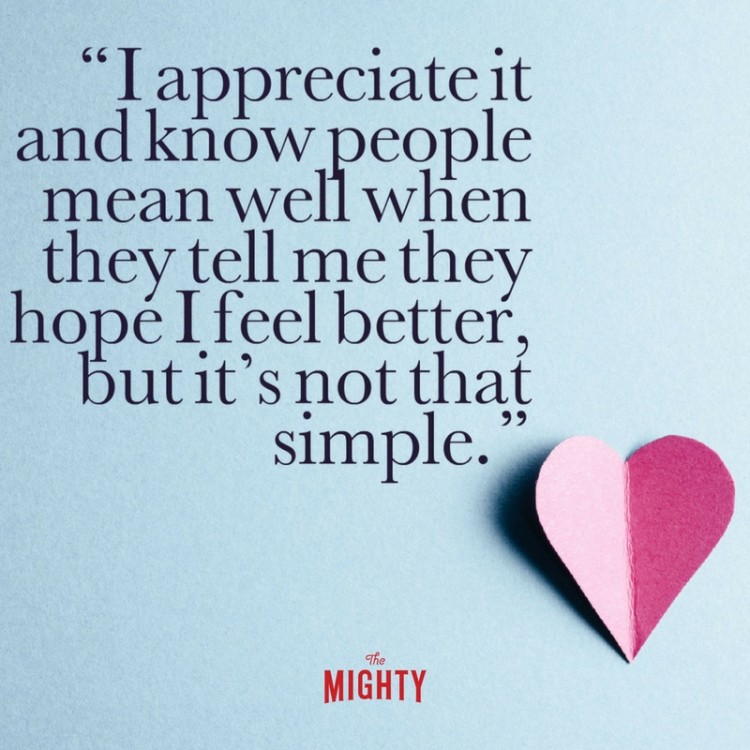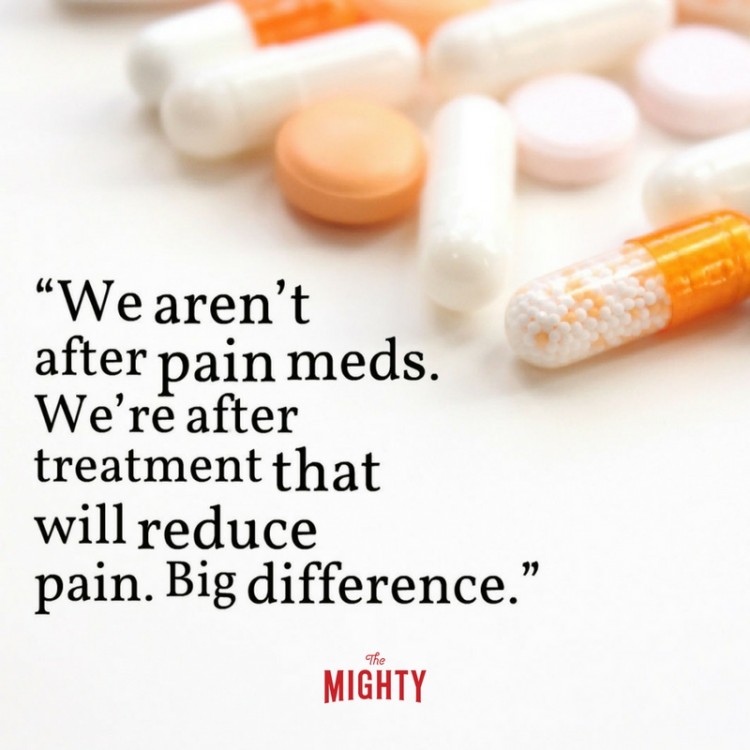17 Things People With Chronic Pain Want You to Learn During Pain Awareness Month
September is Pain Awareness Month, a time for people with chronic pain conditions to inform their communities, medical professionals and government leaders of the challenges that affect their health and well-being. With conversations about access to medical marijuana and opioids heating up this election season, raising awareness this month counts more than ever.
We teamed up with the US Pain Foundation to ask our Facebook communities what they want people to learn about chronic pain. Their answers cover the range of issues the community is fighting for and reveal what’s at stake — their quality of life.
Here’s what they said:
1. “Chronic pain comes in many forms, and people deal with it differently then others and at different times. I play soccer and I want people to know that sometimes I can handle the intensity but not always.”
2. “Just because you see a smiling face doesn’t always mean we are fine. We’ve mastered the art of ‘faking fine’ so you won’t hurt seeing our pain.”
3. “I appreciate it and know people mean well when they tell me they hope I feel better, but it’s not that simple.”

4. “I want people to believe when I say I’m in pain or not feeling well. Many times they don’t believe me. Some even said ‘But you don’t look sick.’”
5. “Chronic pain isn’t just pain. With chronic pain comes an inability to sleep, a loss of appetite, an inability to take part in rigorous activities, depression, anxiety and so many more issues.”
6. “Twenty-five years have taught me that it has an impact on those that love you as well, but it’s not your fault (although you will feel it is). Mostly that impact comes from not being able to help or lessen your burden, from watching you [in pain]. Best way to deal with it is, in my experience, to talk about it, openly, honestly, both [people with chronic pain] and loved ones. Inquire, ask, share. It helps with the loneliness you will undoubtedly feel and the helplessness your loved ones will experience.”
7. “People may discriminate against those with chronic pain, but chronic pain does not discriminate against who it affects. Pain doesn’t care about your gender, sexuality, religion, race, size or if you have other disabilities.”
8. “If you see someone doing something fun and pushing their limits one day, be happy for them. The part you don’t see is the struggle through the smile and the recovery. So be kind, and please don’t judge negatively on what you see that is positive.”
9. “It’s OK that they don’t understand. And I’m grateful they don’t understand. They don’t have to try to fix it or do anything — just treat me like normal, and then understand when I can’t act normal back.”
10. “Taking pain medicine often times doesn’t make the pain ‘go away.’ It lessens the pain making it possible to function. There hasn’t been a day where I haven’t had pain in some part of my body in a very long time.”
11. “We aren’t after pain meds. We’re after treatment that will reduce pain. Big difference.”

12. “We are a population of diverse individuals who do not abuse [medications] and don’t deserve to be treated like we are uniformed consumers when it comes to our medical treatments.”
13. “It is utter and all-encompassing exhaustion. All the time. All day every day. Pain pills don’t always help to ease the pain and sometimes all your body will let you do is sleep but you can’t sleep well because you hurt all over.”
14. “The pain scale is positively ridiculous when you [experience] chronic pain… If you aren’t, or have not ever been through it you’ve got no idea what it is like.”
15. “Trying to accomplish the simplest of tasks with chronic pain is challenging. Trying to keep up with activities of daily living is exhausting. Trying to lead a normal life with chronic pain as a constant companion is impossible.”
16. “We need the support and love of our families and friends. We also certainly need that support translated into legislation that gives us respect and honors us.”
17. “Chronic pain patients just want to continue to function, to work and take care of their homes and family. And sometimes that requires medication that may or may not be addictive. Everybody feels pain differently and what works for some may not work for all. Pain patients just want quality of life!”

